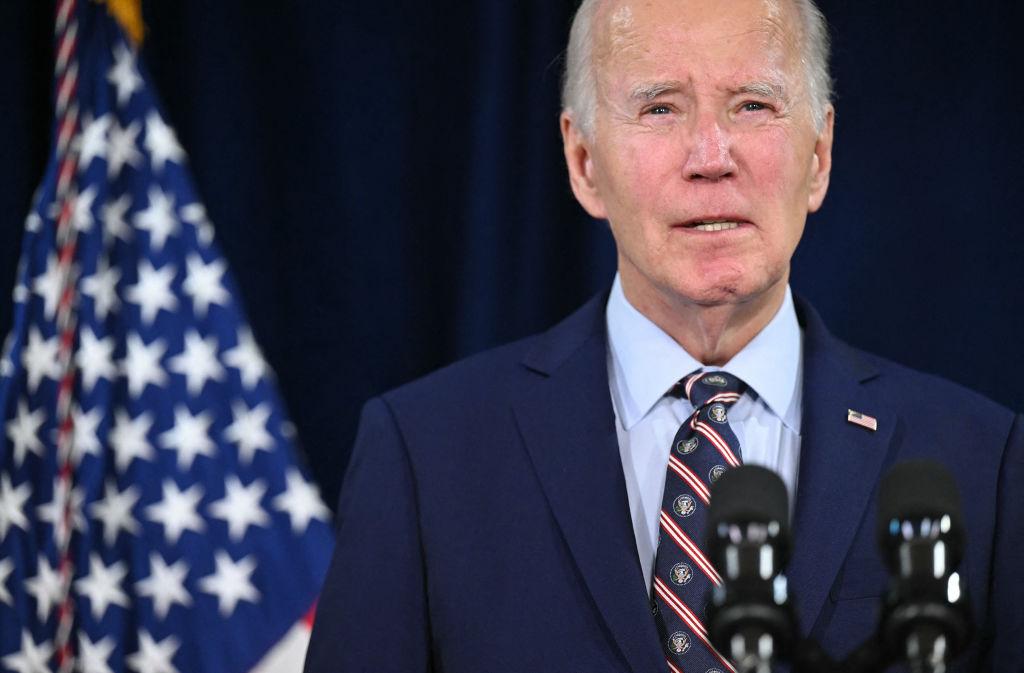President Joe Biden has made headlines once again with a groundbreaking decision impacting over 42,000 federal workers. By signing a “work-from-home deal,” Biden effectively secures remote work arrangements for these employees, a move that prevents high-profile figures like Elon Musk and Vivek Ramaswamy from mandating full-time office returns. This decision highlights the administration's commitment to maintaining flexibility in the federal workforce, sparking both praise and controversy.
The deal ensures that thousands of federal employees can continue their remote work schedules, a practice widely adopted during the COVID-19 pandemic. Proponents argue this policy fosters productivity and work-life balance, while critics contend it could lead to inefficiencies in government operations. As debates intensify, the deal has emerged as a focal point for conversations about the future of work in the public sector.
Divided Opinions Erupt Over Biden’s Remote Work Policy
While Biden’s decision is hailed by many as forward-thinking, others have criticized it as shortsighted and disruptive to government functionality. Social media has become a battleground for conflicting viewpoints, with Twitter users expressing a mix of support and frustration.
- @RemoteLifeFanatic: “Finally, a leader who gets it! Remote work is the future. Productivity isn’t tied to an office chair. #ThanksBiden.”
- @MuskFollower: “How can government function if no one shows up? Musk was right—office work builds innovation and accountability.”
- @VivekForChange: “This is Biden pandering to lazy workers. Federal jobs should be about serving the people, not working in PJs.”
- @WFHAdvocate: “This is a huge win for work-life balance. Remote work helps workers stay productive and reduces stress. #ModernWorkplace.”
- @TaxpayerFirst: “Federal employees should serve us, not lounge at home. This policy feels like a slap to taxpayers.”
- @EqualityMatters: “Not everyone can work from home. Biden should focus on equity in workplace policies, not just convenience for a few.”
These varied reactions underscore the ongoing tension between proponents of remote work and those advocating for a return to traditional office setups.
The Future of Federal Work: Efficiency or Chaos?
The Biden administration’s work-from-home deal represents a significant shift in federal workplace policies, challenging traditional norms. Advocates highlight benefits like increased employee satisfaction, reduced commuting costs, and environmental impacts. However, skeptics argue that remote work could hinder collaboration and accountability in critical government operations.
Elon Musk and Vivek Ramaswamy, known for their firm stances on office-based work, have publicly criticized remote work culture. Their views have fueled a broader debate over how federal agencies should adapt to the evolving nature of work. With technology enabling flexibility, the question remains whether remote arrangements can maintain the efficiency required for government operations.
As Biden’s deal takes effect, its long-term implications for federal productivity, employee morale, and public perception remain uncertain. While the move aligns with modern workplace trends, it is likely to face ongoing scrutiny from political opponents and private-sector advocates.



 TrumpRx.gov Highlights GLP-1 Drug Discounts but Offers Limited Savings for Most Americans
TrumpRx.gov Highlights GLP-1 Drug Discounts but Offers Limited Savings for Most Americans  Trump Says “Very Good Talks” Underway on Russia-Ukraine War as Peace Efforts Continue
Trump Says “Very Good Talks” Underway on Russia-Ukraine War as Peace Efforts Continue  NATO to Discuss Strengthening Greenland Security Amid Arctic Tensions
NATO to Discuss Strengthening Greenland Security Amid Arctic Tensions  China Warns US Arms Sales to Taiwan Could Disrupt Trump’s Planned Visit
China Warns US Arms Sales to Taiwan Could Disrupt Trump’s Planned Visit  TrumpRx Website Launches to Offer Discounted Prescription Drugs for Cash-Paying Americans
TrumpRx Website Launches to Offer Discounted Prescription Drugs for Cash-Paying Americans  Ukraine-Russia Talks Yield Major POW Swap as U.S. Pushes for Path to Peace
Ukraine-Russia Talks Yield Major POW Swap as U.S. Pushes for Path to Peace  Ohio Man Indicted for Alleged Threat Against Vice President JD Vance, Faces Additional Federal Charges
Ohio Man Indicted for Alleged Threat Against Vice President JD Vance, Faces Additional Federal Charges  U.S. Announces Additional $6 Million in Humanitarian Aid to Cuba Amid Oil Sanctions and Fuel Shortages
U.S. Announces Additional $6 Million in Humanitarian Aid to Cuba Amid Oil Sanctions and Fuel Shortages  UAE Plans Temporary Housing Complex for Displaced Palestinians in Southern Gaza
UAE Plans Temporary Housing Complex for Displaced Palestinians in Southern Gaza  U.S.-India Trade Framework Signals Major Shift in Tariffs, Energy, and Supply Chains
U.S.-India Trade Framework Signals Major Shift in Tariffs, Energy, and Supply Chains  U.S. Lawmakers to Review Unredacted Jeffrey Epstein DOJ Files Starting Monday
U.S. Lawmakers to Review Unredacted Jeffrey Epstein DOJ Files Starting Monday  Trump Allows Commercial Fishing in Protected New England Waters
Trump Allows Commercial Fishing in Protected New England Waters  Trump Signs Executive Order Threatening 25% Tariffs on Countries Trading With Iran
Trump Signs Executive Order Threatening 25% Tariffs on Countries Trading With Iran  Trump Rejects Putin’s New START Extension Offer, Raising Fears of a New Nuclear Arms Race
Trump Rejects Putin’s New START Extension Offer, Raising Fears of a New Nuclear Arms Race  U.S. to Begin Paying UN Dues as Financial Crisis Spurs Push for Reforms
U.S. to Begin Paying UN Dues as Financial Crisis Spurs Push for Reforms  Trump Endorses Japan’s Sanae Takaichi Ahead of Crucial Election Amid Market and China Tensions
Trump Endorses Japan’s Sanae Takaichi Ahead of Crucial Election Amid Market and China Tensions  Marco Rubio Steps Down as Acting U.S. Archivist Amid Federal Law Limits
Marco Rubio Steps Down as Acting U.S. Archivist Amid Federal Law Limits 





























